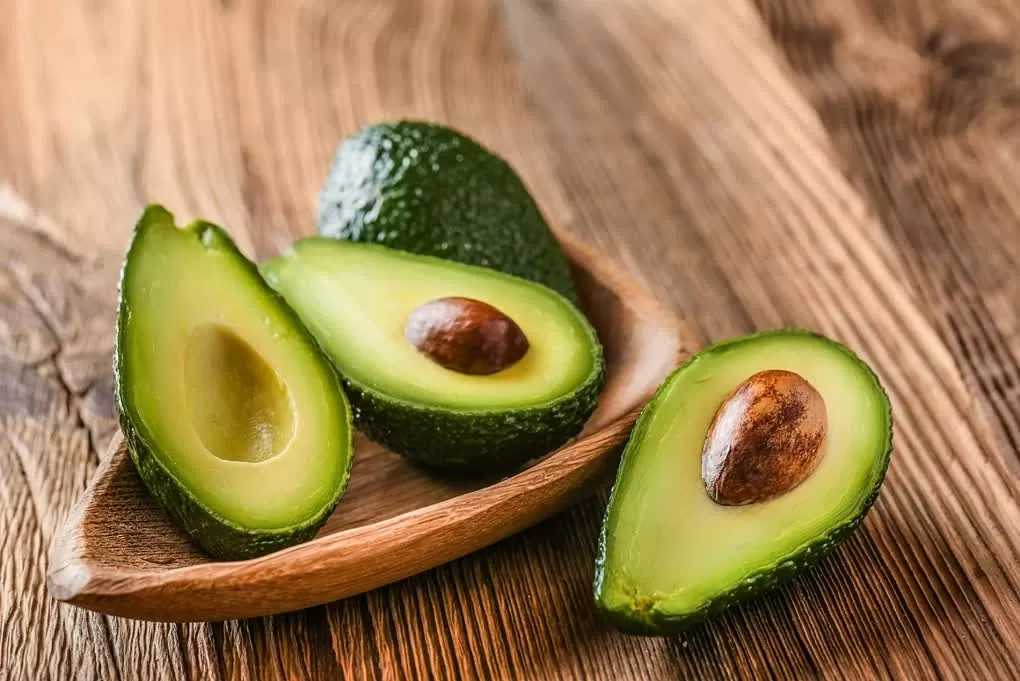 |
| To maximize the benefits of avocado for liver health, nutritionists recommend eating avocado in the morning or mid-afternoon. (Source: Health.com) |
Eating avocado properly and at the right time helps improve liver function, contributing to preventing dangerous diseases such as non-alcoholic fatty liver disease (NAFLD) - a condition that is increasingly common in the modern community.
Avocado - "super food" rich in nutrients to protect the liver
According to analysis by the US Department of Agriculture (USDA), an average avocado (about 200g) provides more than 20 essential vitamins and minerals such as vitamins E, C, K, B5, B6, potassium, folate and monounsaturated fats (MUFA). Of which, oleic acid - the main type of fat in avocados - plays an important role in reducing inflammation and improving lipid metabolism in the liver.
Dr. Matthew Cave, a liver disease researcher at the University of Louisville (USA), said: "A diet rich in monounsaturated fatty acids like those in avocados can help improve insulin sensitivity, reduce fat accumulation in the liver and support the recovery of damaged liver cells."
In addition, avocado also contains a large amount of glutathione - an endogenous antioxidant that can neutralize free radicals, protecting liver cells from damage caused by oxidative stress, which is a key factor causing hepatitis and liver fibrosis.
How does eating avocado help reduce liver enzymes and improve fatty liver?
A study published in the Journal of Agricultural and Food Chemistry (2014) showed that avocado extract inhibits the activation of Kupffer cells (immune cells in the liver), thereby reducing inflammation and liver damage in mice with liver toxicity caused by carbon tetrachloride.
Research at Shizuoka University, Japan shows that adding avocado to the diet can significantly reduce the levels of liver enzymes ALT and AST - two indicators of liver damage - as well as reduce fat accumulation in the liver of mice after 4 weeks.
In a small clinical trial in Mexico, people with non-alcoholic fatty liver disease who ate half an avocado daily for six weeks showed significant improvements in blood lipid levels and reductions in liver enzymes compared with a control group.
The best time to eat avocado to support the liver
To maximize the benefits of avocado for liver health, international nutritionist Keri Glassman (USA) recommends eating avocado in the morning or mid-afternoon - when the body needs stable energy and absorbs fat better. Specifically:
- Morning (before 9am): Combine avocado with whole wheat bread, eggs or oatmeal to help you stay full longer, stabilize blood sugar and provide healthy fats for the liver to function effectively all day.
- Mid-afternoon (around 3-4pm): Half an avocado with unsweetened Greek yogurt or as a smoothie helps control cravings, reduce calories from dinner, thereby limiting visceral fat accumulation - including liver fat.
You should not eat avocado at night, especially after 8pm because at this time the liver slows down, easily leading to bloating and indigestion.
Notes when using avocado to help reduce liver enzymes and fatty liver
Although avocados are good for the liver, Dr. Josh Axe, a functional nutritionist (USA), emphasizes that avocados should be eaten in moderation, from half a fruit to one small fruit per day is enough. Overusing avocados can cause excess calories, which is counterproductive to reducing liver fat, especially in people who are sedentary.
In addition, you should prioritize eating fresh avocados and avoid processed products such as canned avocados and industrially blended avocados containing sugar and preservatives, which can burden the liver.
Combining avocado with a diet rich in green vegetables, fresh fruits, fatty fish and nuts also helps to enhance liver support, while maintaining an ideal weight - a key factor in preventing fatty liver and chronic liver disease.
Source: https://baoquocte.vn/tac-dung-than-ky-cua-qua-bo-voi-suc-khoe-gan-317836.html


































































![[Photo] Party and State leaders visit President Ho Chi Minh's Mausoleum and offer incense to commemorate Heroes and Martyrs](https://vphoto.vietnam.vn/thumb/402x226/vietnam/resource/IMAGE/2025/8/17/ca4f4b61522f4945b3715b12ee1ac46c)


![[Photo] General Secretary To Lam and other Party and State leaders attend the ceremony to celebrate the 80th anniversary of the Vietnam People's Public Security Forces' Traditional Day.](https://vphoto.vietnam.vn/thumb/402x226/vietnam/resource/IMAGE/2025/8/17/1f782c0c9f37400d86b29aefbd8a891b)































Comment (0)